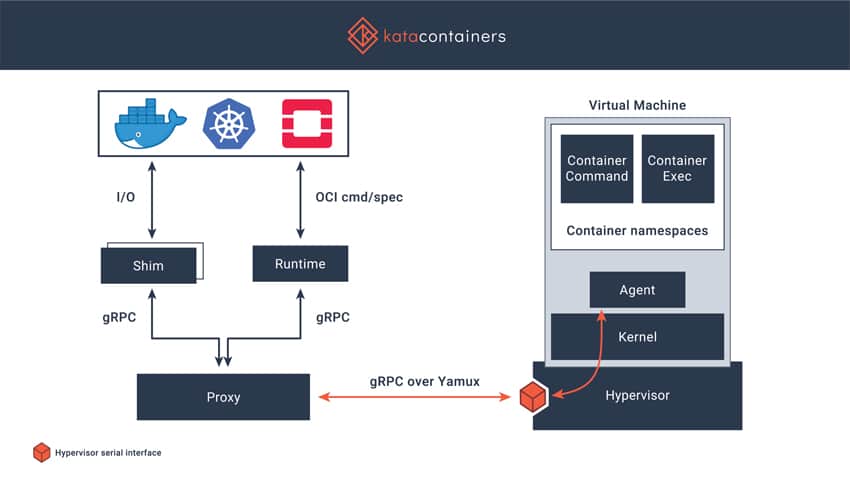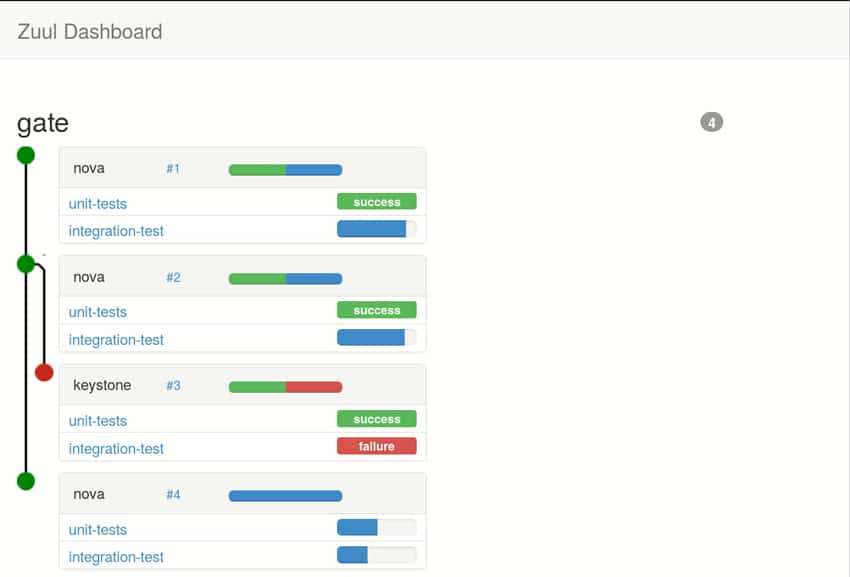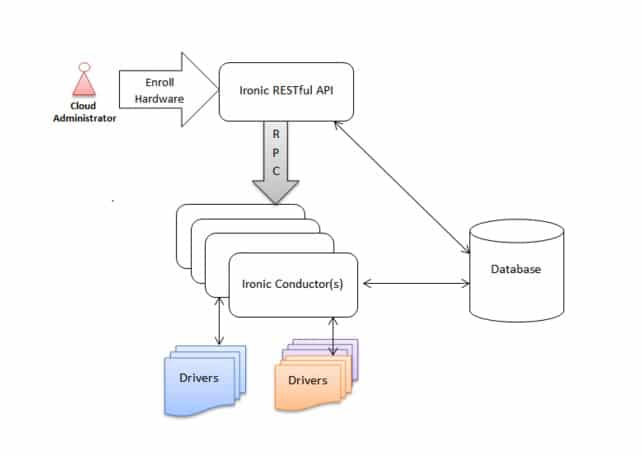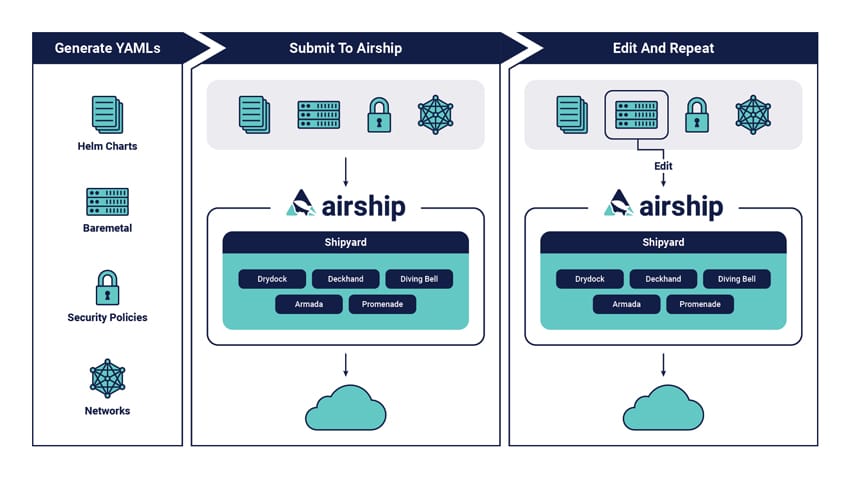OpenStack renamed its biannual summit to Open Infrastructure Summit, and StorageReview is onsite here in beautiful Denver, Colorado for the first summit. A few weeks ago OpenStack made the major announcement of its latest, 19th, version Stein. At the summit, the OpenStack Foundation (OSF) went over advancements in projects such as Kata Containers and Zuul, momentum of projects like Ironic, the release of Airship 1.0, and open source 5G and edge computing use cases.
Kata Containers & Zuul Are First Pilot Projects Confirmed as Top-Level ‘Open Infrastructure Projects’
The OSF board of directors announced that its former, and popular, pilot projects Kata Containers and Zuul have been confirmed as top-level Open Infrastructure Projects of the OSF. When a project gets confirmed by OSF it means that it has hit certain goals of the pilot process and that the OSF is committed to continue supporting it.

Kata Containers, now in version 1.6, has been a pilot project since December 2017. According to OSF, this project allows a secure runtime underneath popular container technologies like Kubernetes and Docker, with lightweight virtual machines that feel and perform like containers, but provide stronger workload isolation using hardware virtualization technology as a second layer of defense. Highlights since its announcement include:
- The contributor base has expanded considerably, with 4,125 all-time commits from 116 authors representing more than 22 companies. Contributors include 99Cloud, Alibaba, Arm, Atlassian, Baidu, Branch, Cray, Dell, Ebay, Google, Huawei, Hyper.sh, IBM, Intel, Interdynamix, Microsoft, Nvidia, Oracle, Orange, Red Hat, SUSE, Tencent, Vexxhost and ZTE.
- AWS, Google, IBM, Microsoft, PackageCloud, Packet, SUSE and Vexxhost, an OpenStack-powered public cloud, have donated infrastructure resources to make sure that Kata Containers runs properly on different clouds.
- The Kata Containers community has delivered several software releases and is actively collaborating and delivering cross-community integration with Containerd, Cri-O, Firecracker, Kubernetes, Open Container Initiative and Zun.

Zuul, now in version 3.8.0, was announced a pilot project in May of 2018. According to OSF, Zuul uses project gating to automate continuous integration, delivery and deployment of interrelated software projects in a secure manner, while delivering sophisticated project gating, especially in scenarios involving multiple repositories with integrated deliverables. Zuul is built for a world where development, testing and deployment of applications and their dependencies are one continuous process. Highlights since its release include:
- The community issued 15 releases, delivering features including support for AWS, OpenShift and multiple Ansible versions, speculative container execution, and the ability for jobs to control which child jobs run.
- Zuul boasts a robust contributor base and user community, including the Ansible community, BMW, GoDaddy, GoodMoney, Leboncoin, OpenLab, OpenStack, Red Hat, SUSE, Tungsten Fabric, and the Wikimedia Foundation.
- Six case studies have been published highlighting how organizations like BMW, GoDaddy, Software Factory, Packet Host, leboncoin, and even the OSF run Zuul.
Ironic OpenStack Bare Metal Gains Momentum with Containerized Application Architectures

OSF announced that its Ironic Bare Metal project has gained momentum now managing million of compute cores all over the world, with 24% of production deployments now relying on it, up from just 9% in 2016. Ironic is a bare metal provision service that helps automate infrastructure for a mix of virtualized and containerized workloads. Ironic provides a production-proven means to manage the complete lifecycle of bare metal hardware.
OpenStack has launched an Ironic Bare Metal program to highlight commercial ecosystem for Ironic, at-scale deployments of Ironic, and evolution of OpenStack beyond virtual machines. At the launch of the program, there are over thirty organizations including Verizon Media and CERN.
Airship 1.0 Released

Airship saw its release today with version 1.0. Airship (a collection of loosely coupled, interoperable open source tools) is aimed at delivering simplified cloud lifecycle automation via containers on bare metal. Airship was announced as a pilot project in May of 2018. Version 1.0 comes with enhancements to security, resiliency, continuous integration and documentation, as well as upgrades to the platform, deployment and tooling features and is aimed at users such as telecoms, manufacturers, healthcare providers and individual developers.
According to OSF, Starting from bare metal, Airship manages the full lifecycle of infrastructure to deliver a production-grade Kubernetes cluster with Helm-deployed artifacts, including OpenStack-Helm. Airship allows operators to manage their infrastructure deployments and lifecycle through the declarative YAML documents that describe an Airship environment. One workflow handles both initial deployments as well as future site updates.
It has been quite a year for the project. Airship is in production at both AT&T and SKT. And the community around it is up to 3,072 commits in 15 repos and 137 contributors from 17 companies across Asia, Europe and the Americas.
5G & Edge Computing Use Cases
At the Open Infrastructure Summit many contributors have come to demonstrate how open source software is power 5G and edge computing deployments. AT&T and Ericsson will demonstrate their 5G technologies with a mmWave bandwidth of the 5G radio technology to showcase how the 39 GHz band New Radio (NR) network is capable of achieving more than 1 Gbps of throughput. At&T will also feature another live 5G video call the same as they demonstrated in Berlin in November. There will be several global telecoms at the summit that will be going over their 5G strategy as well as several demos and deep dives including:
- Delivering Open Infrastructure with Airship and OpenStack-Helm to Enable Workloads like 5G (AT&T)
- China Mobile’s 5G Practice Based on OpenStack (China Mobile)
- Highly Efficient Edge Cloud Data Center for 5G (Mellanox, Nokia)
- 5G-based Intelligent Manufacturing Edge Solution (99cloud)
- Don’t Touch That! Addressing Edge Infrastructure Management (RackN)
- Designing NFVi Architecture at the Edge – Requirements, Challenges and Solutions (Charter Communications, Red Hat)
- Akraino, EdgeX, CORD, OpenEdge, ioFog… What’s the Best Solution for Your Edge? (Intel)
- Container Networking at the Edge (Dell, Red Hat)
- Digital Transformation in Finance Industry (Ericsson)
- Secure Containers — Kata Containers — on Edge Cloud (Baidu & Intel)




 Amazon
Amazon